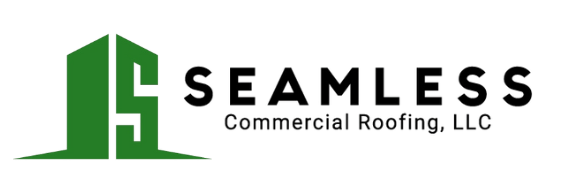Common Commercial Insulation Types
When it comes to commercial roof insulation materials, there are several options available that cater to the specific needs of commercial properties. Two common types of insulation widely used in commercial construction projects are spray foam insulation and rigid foam insulation.
Spray Foam Insulation
If you are looking for an insulation solution that offers high R-Value, mildew resistance, and flexibility, spray foam insulation is a top contender. This type of insulation, as highlighted by DBS Group, stands out for its advantageous properties compared to rigid foam insulation. The high R-Value of spray foam insulation ensures exceptional thermal performance, making it ideal for maintaining energy efficiency in commercial buildings.
Moreover, the mildew resistance of spray foam insulation adds a layer of protection against moisture-related issues, which is crucial for the longevity and durability of the building structure. The flexibility of spray foam insulation allows it to conform to various shapes and sizes, ensuring comprehensive coverage and sealing of potential air leakage points.
Rigid Foam Insulation
When cost-effectiveness is a significant consideration in your commercial construction project, rigid foam insulation emerges as a favorable choice. Known for its economical advantages, rigid foam insulation is a practical option for projects where budget constraints play a crucial role. As highlighted by DBS Group, understanding the cost-effectiveness of rigid foam insulation can guide you in making informed decisions regarding insulation types for your construction endeavor.
Rigid foam insulation provides reliable thermal performance and insulation properties while offering a cost-efficient solution for commercial roofing projects. Its durability and ease of installation make it a popular choice among building owners, facility managers, and construction professionals who prioritize both quality and affordability in their projects.
By considering the unique characteristics and benefits of spray foam insulation and rigid foam insulation, you can make an informed decision on the best insulation for your commercial roof project. Whether you prioritize energy efficiency, durability, or cost-effectiveness, these insulation types offer versatile solutions to meet the diverse needs of commercial properties. For more information on selecting the best insulation for commercial roofs, explore our article on best insulation for commercial roofs.
Comprehensive Options for Commercial Roofing Insulation
When it comes to commercial roof insulation materials, selecting the most suitable type plays a significant role in the efficiency and durability of your building. Among the various options available, fiberglass, polyiso, mineral wool, and spray foam insulation are commonly utilized for commercial roofing applications.
Fiberglass Insulation
For those seeking cost-effective commercial roofing insulation, fiberglass insulation stands out as a budget-friendly choice. As per The Spruce, fiberglass insulation costs less than half the price of rigid foam board insulation when calculated by R-value per square foot. For instance, insulating a 10-square-foot wall area to R-15 costs around $3.40 to $4.00 with fiberglass insulation, whereas a comparable R-value for rigid foam costs roughly $10. Fiberglass insulation provides decent thermal resistance at an economical price point, making it a popular option for commercial roofs.
Polyiso Insulation
Polyiso insulation has emerged as a prominent choice, representing over 75% of the best insulation for commercial roofs due to its cost-effectiveness, efficiency, and fire resistance. The accuracy of insulation value has become crucial with escalating energy costs, and polyiso addresses this need effectively. According to GAF, polyiso is commonly used in residential wall systems and roof assemblies as continuous insulation. The “R-Value Rule” laid out by the US Congress ensures that R-value information is transparently provided by manufacturers, installers, and sellers, with claims enforceable by law.
Mineral Wool Insulation
In the realm of commercial roofing insulation, mineral wool is a notable contender within the product line offered by Johns Manville, encompassing Fiberglass, Foam Board, Mineral Wool, and Spray Foam insulation options (Johns Manville). Mineral wool insulation provides excellent thermal properties and fire resistance, making it a reliable choice for commercial properties looking to enhance energy efficiency and safety.
Spray Foam Insulation
Among the selections available for energy-efficient insulation, spray foam insulation stands out for its high R-value, mildew resistance, and flexibility. According to DBS Group, spray foam insulation offers advantages over rigid foam insulation by providing effective and durable insulation solutions for commercial construction projects. The versatility and performance characteristics of spray foam insulation make it a desirable option for buildings that require advanced thermal protection and moisture control.
Carefully considering the specific requirements and performance attributes of fiberglass, polyiso, mineral wool, and spray foam insulation options enables you to make an informed decision that aligns with your commercial roofing needs. Prioritize the longevity, energy efficiency, and cost-effectiveness of the selected insulation type to optimize the performance and sustainability of your commercial property.

